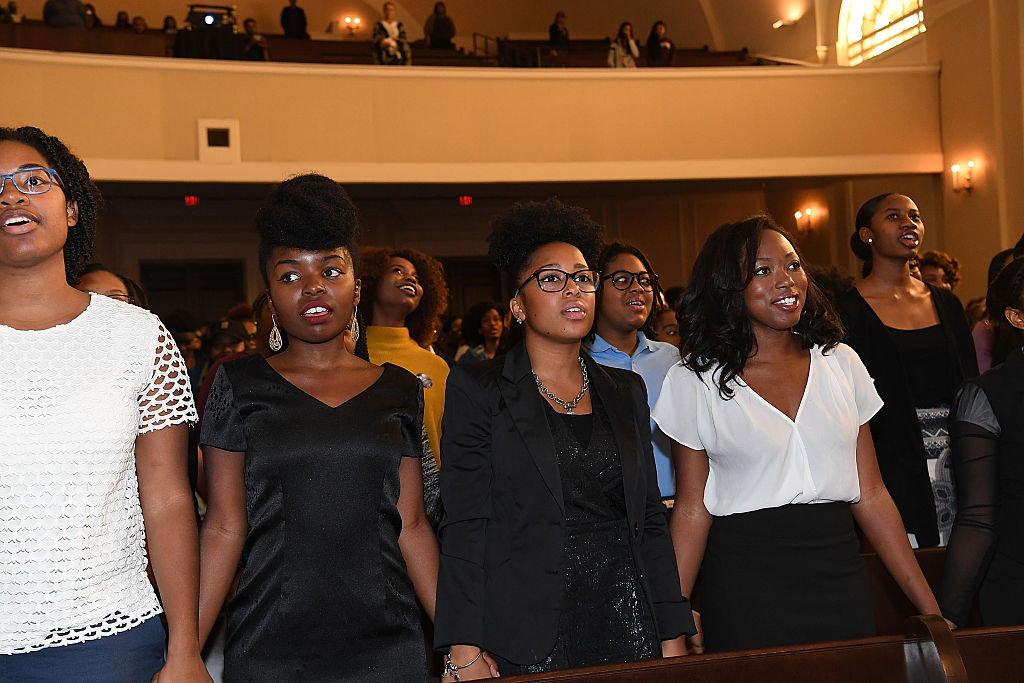Gen Z’s unique commitment to the promise of Juneteenth has far reaching impact
OPINION: To talk with Gen Z, you must acknowledge their experience with racism and protest. Businesses are no exception here.
This Juneteenth, Gen Z’ers – those under 25– are uniquely suited and disproportionately committed to addressing the legacy of slavery in America. The most racially diverse generation in American history saw the first Black man, Barack Obama, elected president in grade school. Then, in high school and college, they watched the country split further as former President Donald Trump assumed office. The pandemic, economic upheaval, and the national reckoning around race round out their coming of age story.
Now, new analysis from Axios/Ipsos finds that the protests that erupted last summer following the death of George Floyd at the hands of police left their distinct mark too. The research is clear. To talk with Gen Z, you must acknowledge their experience with racism and protest. Businesses are no exception here.
One year later, racial injustice and discrimination hold the same importance as the pandemic for this age group. The events of the last year made most Gen Z’ers realize that the country still has a problem with racism.
(Credit: Getty Images)
America’s youngest generation played an active role in advocating for racial justice last summer. Most protesters were part of this age group. They drove the online conversation in the wake of George Floyd’s murder. This new analysis finds that most Gen Z’ers continue to have a favorable opinion of Black Lives Matter, far ahead of Boomers (56+ years old) and above Generation X (40-55 year old) as well.
Beyond protesting last summer, many young people have taken their activism out of the streets and into their personal lives to better understand racial issues in America. To that end, three in five Gen Z’ers from this survey are discussing racial injustice with people of different races, surpassing Boomers by 25-points on this question. Additionally, they beat out other generations when engaging in other forms of activism, too, like reading articles on racial injustice and joining organizations that fight for these causes.
Yet, the breadth of Gen Z’s activism reflects how far they feel the country still has to go in living up to its ideals of equality for all. Most in this age group believe that the U.S. needs to continue making changes to give Black Americans equal rights with white Americans.
Given the long road ahead and their active role in social change, Gen Z also expects businesses to address the social issues they, as consumers, support. A majority believe corporations should take a stand on social issues and speak out against state and federal laws that are wrong. Last summer, polling found that 56% of Gen Z’ers would be more likely to purchase something from a company that took a stand on racial justice, 25-points ahead of Boomers.
Photo: Adobe Stock
These protest-informed purchasing decisions are here to stay. More than any other generation, Gen Z believes that last year’s demonstrations had a positive impact on society. This politically active age group believes in their protest power.
What does this mean for companies? There are many right and wrong ways for businesses to voice support. Research shows that backing up communication with authentic action, and diversifying advertising through both content and talent are winning strategies to demonstrate support and allyship.
Gen Z’s commitment to discussing and addressing racism in America sheds light on how far there is to go, the points of tension for businesses in talking to this generation, and hope for where these conversations will lead our country.
One thing is clear: America’s most racially diverse generation cares deeply about racial justice, and the conversation around racism this past year left its mark. This Juneteenth, Gen Z is not waiting for change to happen; they are making it. And, they expect you to do so too.
April Jeffries, Global President of Ipsos Understanding Unlimited: April Jeffries, Global President Ipsos Understanding Unlimited, provides vision, strategy, and execution of immersive and ethnographic research around the world, commissioned to capture cultural nuances and divulge critical insights to better understand people, markets and societies.
Dr. Manuel Garcia-Garcia, Global Lead of Neuroscience at Ipsos: Dr. Manuel Garcia-Garcia is Global Lead of Neuroscience at Ipsos. He has developed thought leadership to shake the research industry in various fronts, including multicultural marketing and cultural effectiveness. He has been featured in multiple industry events such as Advertising Week, ARF, ESOMAR, Neuromarketing World Forum, Univision Leading the Change, among many other global conferences. He is the author of the neuroscience consumer research textbook published by MIT Press and serves on the anti-racism and allyship board within Ipsos.
Nicolas Mercurio, Executive Vice President at Ipsos: Nick Mercurio is Executive Vice President at Ipsos, leads the Channel Performance business in the United States, and serves on the anti-racism board at Ipsos. His research specialties include customer experience, path-to-purchase and mystery shopping. He works in an advisory capacity with leading brands in the Tech, Retail, Financial Services and Automotive industries to help them define and deliver exceptional customer experiences, and improve their business and operational performance across all of the channels they serve customers.
Have you subscribed to theGrio’s new podcast “Dear Culture”? Download our newest episodes now!
TheGrio is now on Apple TV, Amazon Fire, and Roku. Download theGrio today!
The post Gen Z’s unique commitment to the promise of Juneteenth has far reaching impact appeared first on TheGrio.

